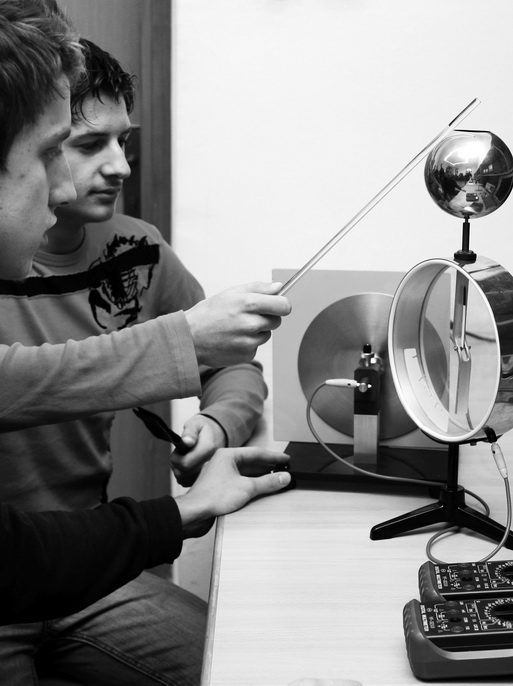General information

Department of Electrical Engineering
The Department carries out an undergraduate professional study in electrical engineering which lasts for three years and upon the completion of which the student acquires 180 ECTS credits and the academic title of a Bachelor of Electrical Engineering (bacc.ing.el.). The undergraduate professional study in electrical engineering has two programs – “Automation” and “Biomedical Electronics”. Students choose a particular program after they successfully finish their second year of study, i.e. after they have acquired 120 ECTS credits. The study program has been carried out since 2001 and it has been aligned with the guidelines of the Bologna Process since 2005. Through an accredited curriculum and program (a conducted procedure of re-accreditation followed by the process of external quality evaluation), the Department educates the future engineers to develop competencies which enable the performance of various highly professional and managerial jobs in the fields which correspond to the mentioned programs. For all the courses covered by the study plan and program, the syllabi with learning outcomes have been made; units and chapters analyzed during the courses have been defined, along with the student obligations, exam procedures and the criteria on the basis of which the final grade is given. The expected learning outcomes and all other information on the courses are publicly available to students on the website (http://www.unin.hr/elektrotehnika/kolegiji/).
After graduation, the Bachelors are capable of responding to the current demands of new technologies and modern computer-aided production processes. Therefore, the study is focused on educating engineers for taking up employment in modern industrial facilities or on the maintenance of biomedical equipment, devices and systems. Due to the way in which the study is conceptualized, with a large number of well-equipped laboratories and narrowly defined elective courses, a quality teaching performance adapted to the regional labor market needs is ensured. Upon the completion of the study of “Automation”, competencies required for taking up employment in modern industrial facilities and small and medium companies, including privately held companies, are acquired. Students acquire the knowledge and skills needed for fitting, installation and maintenance of automation equipment and devices, maintenance of modern automation systems based on computer-guided technological production processes, and computer guidance of technological production processes through the production of specialized application software suits. Upon the completion of the study of “Biomedical Electronics”, competencies required for taking up employment in medical institutions and small and medium companies, including privately held companies, are acquired. Students acquire the knowledge and skills needed for the fitting, repair and maintenance of modern medical equipment in medical institutions, knowledge and skills required for providing technical support in medical device retailing, and the knowledge of medical information systems engineering.